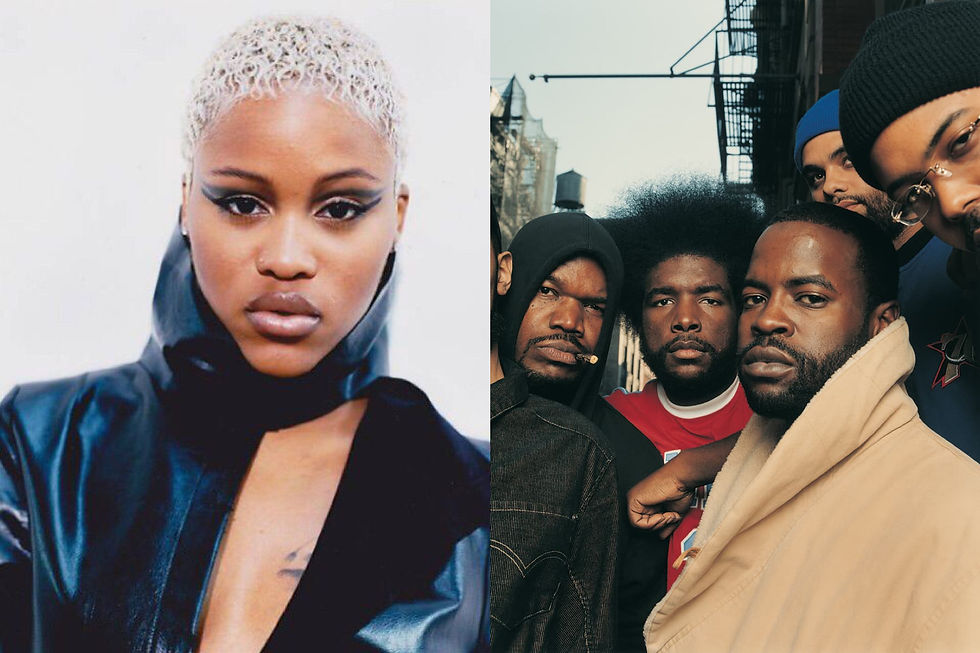How Junkyard Dog’s Happiest Day Turned Into Tragedy | The True Life Story of Sylvester Ritter
- Nolazine

- Aug 19, 2025
- 3 min read

On June 1, 1998, professional wrestling lost one of its most beloved and charismatic stars. Sylvester Ritter, better known to the world as the Junkyard Dog (JYD), tragically passed away at just 45 years old in a car accident near Forest, Mississippi. What made his death even more heartbreaking was the timing—he was returning home from one of the proudest moments of his life: his daughter LaToya Ritter’s high school graduation.
According to reports, Ritter fell asleep at the wheel on Interstate 20. His car rolled three times after veering off the road, ending a life that had inspired countless fans both inside and outside the wrestling ring.
Born on December 13, 1952, in North Carolina, Sylvester Ritter excelled as a student-athlete. He played football at Fayetteville State University, earning All-American honorable mentions before graduating in 1975 with a political science degree. In 1976, he briefly signed with the Green Bay Packers before a knee injury ended his NFL dreams.
Instead of football glory, Ritter turned to professional wrestling in 1977. He worked across the United States, Germany, and Canada—where he wrestled for Stu Hart’s Stampede Wrestling as “Big Daddy Ritter”—before settling into Mid-South Wrestling. It was there that booker “Cowboy” Bill Watts gave him the now-iconic moniker: Junkyard Dog, inspired by Jim Croce’s song “Bad, Bad Leroy Brown.”
With his signature dog collar, long chain, and infectious charisma, JYD quickly became the face of Mid-South Wrestling. Fans adored him for his strength, his larger-than-life personality, and his relatability. His devastating powerslam, known as the “Thump,” became a fan-favorite finisher.
JYD’s popularity skyrocketed in the 1980s. He regularly headlined sold-out shows, including the Louisiana Superdome, and became the first Black wrestler to headline a major wrestling promotion in an era where African American wrestlers were often relegated to supporting roles.
In fact, a survey conducted among New Orleans schoolchildren in the early 1980s revealed that JYD was the athlete they most wanted to meet—beating out local sports legends like Archie Manning and “Pistol” Pete Maravich.
In 1984, JYD joined the World Wrestling Federation (WWF), where he continued his meteoric rise. He competed at the inaugural WrestleMania in 1985, won The Wrestling Classic tournament later that year, and feuded with legends like Ted DiBiase, Harley Race, and The Funk Brothers. His ring entrances, often set to Queen’s “Another One Bites the Dust” or George Clinton’s “Atomic Dog”, made him a fan favorite across the country.
Even after his WWF run, JYD continued wrestling in WCW and various independent promotions, where he mentored younger talent—including future WWE star Rodney Mack.
JYD’s sudden passing in 1998 left the wrestling world stunned. A man who had dedicated his career to entertaining and inspiring fans was gone far too soon. Yet, his impact endured.
In 2004, Sylvester Ritter was posthumously inducted into the WWE Hall of Fame, forever enshrining his contributions to the sport. WWE author Brian Shields described him as “one of the most electrifying and charismatic wrestlers in the country, particularly during his peak in the early 1980s.”
To this day, JYD’s memory lives on in the hearts of wrestling fans who remember not only his power and energy in the ring but also his ability to connect with people in a deeply personal way.
What was meant to be the happiest day of his life—celebrating his daughter’s graduation—ended in tragedy. But Junkyard Dog’s story remains one of perseverance, trailblazing, and unforgettable charisma.






Comments